Addition Practice Word Problems Worksheets for 9-Year-Olds
10 filtered results
-
From - To
Boost your child's math skills with our engaging addition practice word problems worksheets, specifically designed for 9-year-olds! These worksheets provide a fun and interactive way for students to master addition through real-world scenarios. Each problem encourages critical thinking and enhances comprehension by requiring kids to decode and solve relatable situations. With a variety of exercises, learners will enjoy practicing essential math concepts while developing problem-solving skills. Ideal for independent practice or classroom activities, our addition word problems will help students gain confidence in their mathematical abilities. Download these printable worksheets today and watch your child's understanding of addition soar!
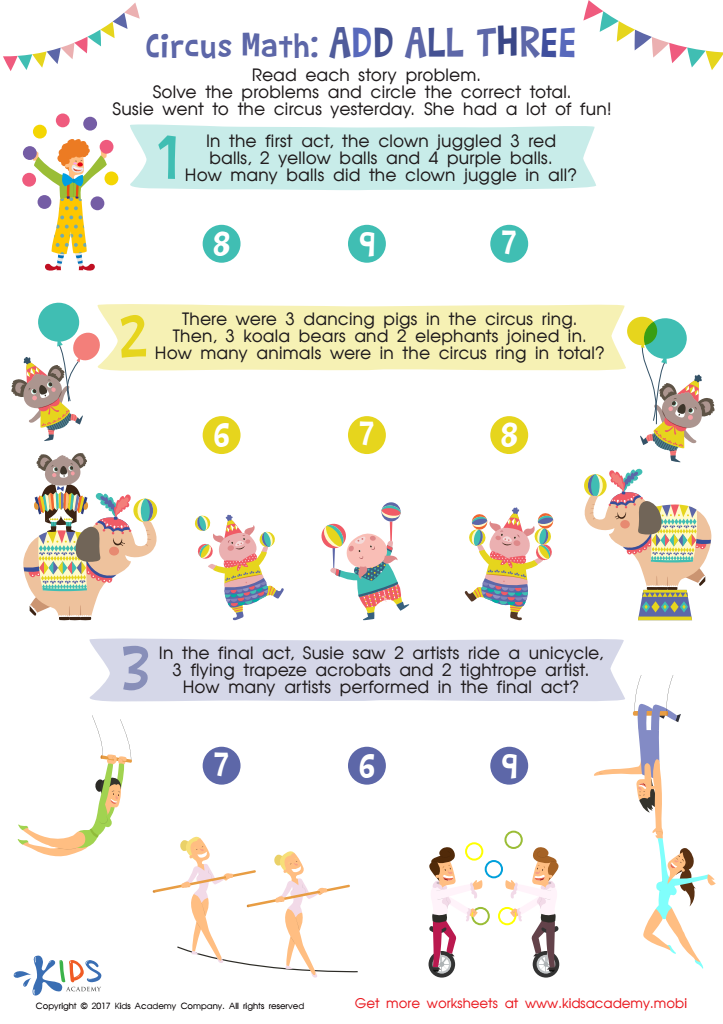

Circus Math Printable
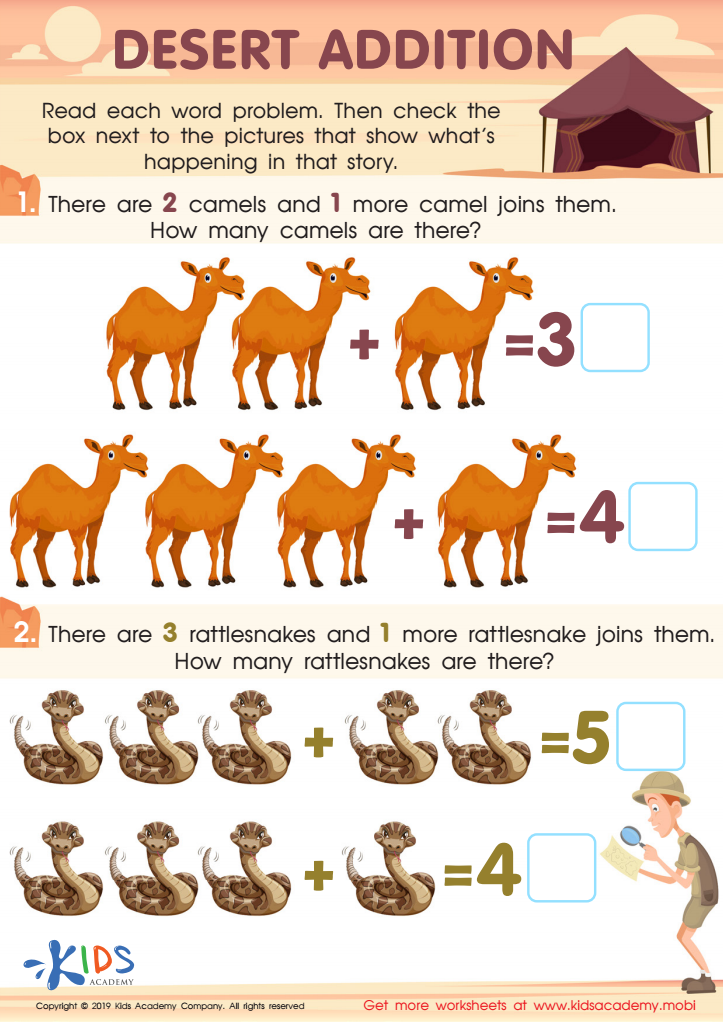

Desert Addition Worksheet
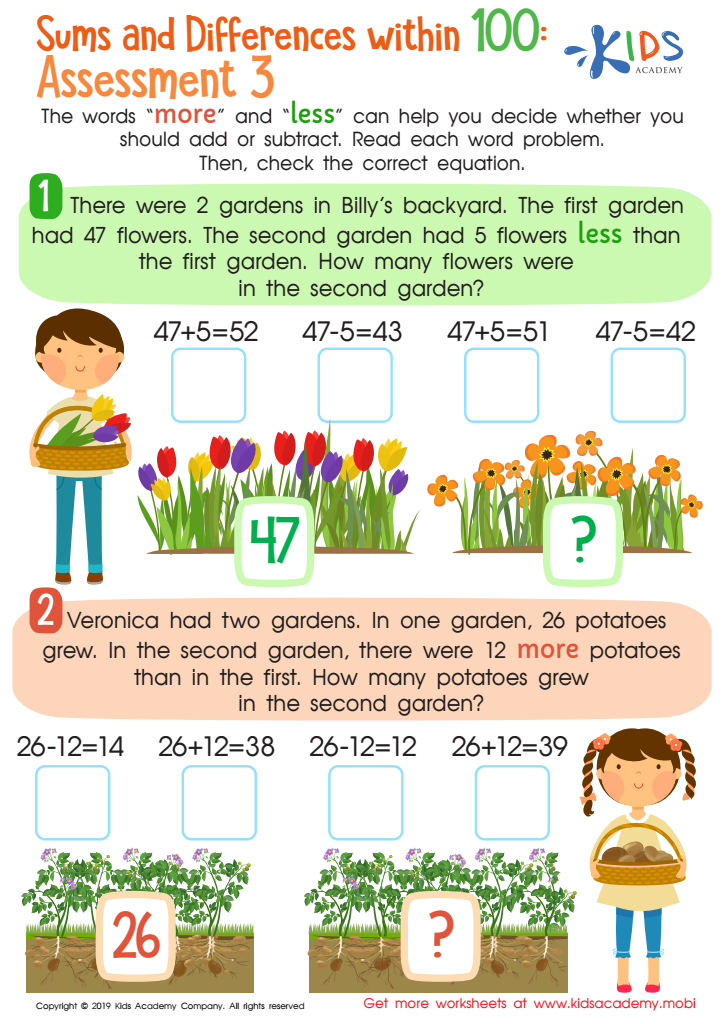

Sums and Differences Within 1 - Assessment 1 Worksheet
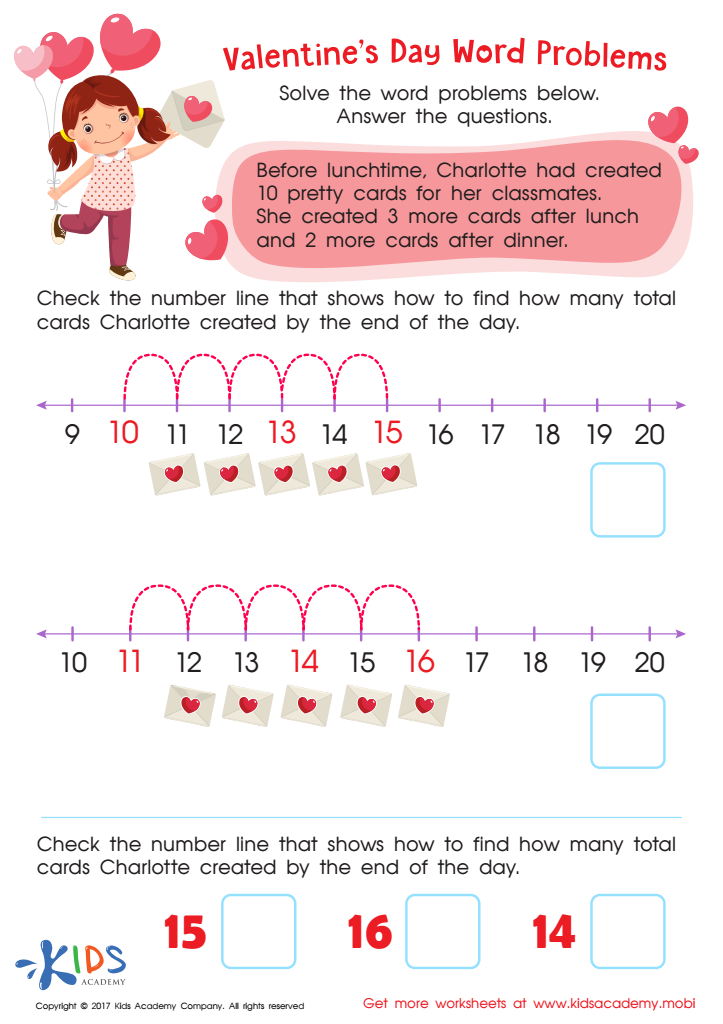

Valentines Day Word Problem Worksheet
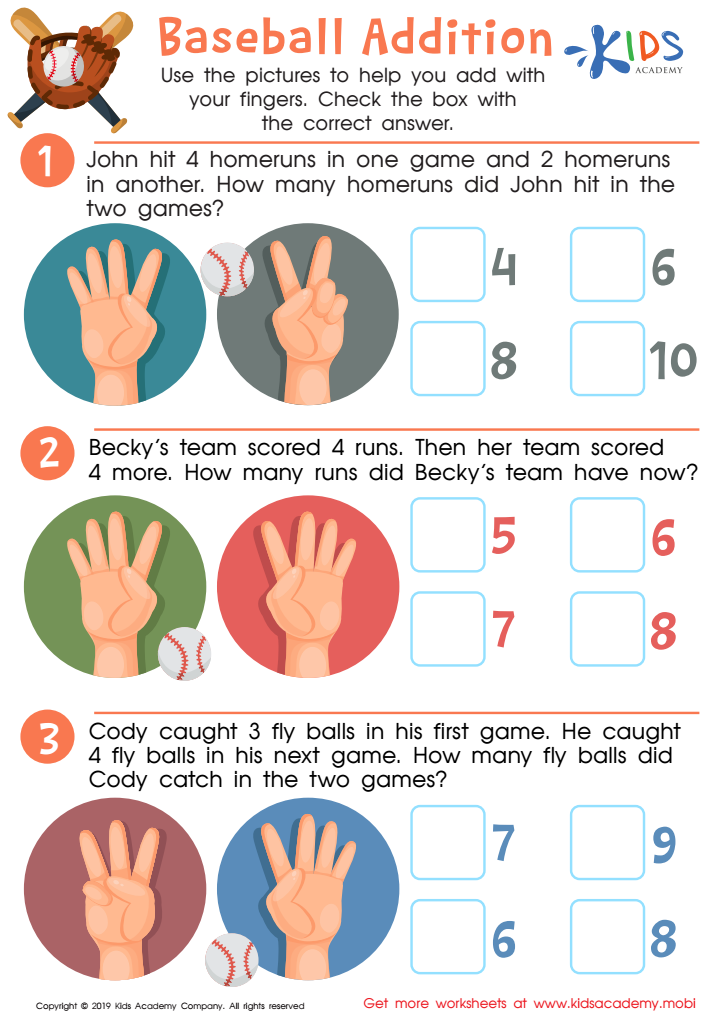

Baseball Addition Worksheet
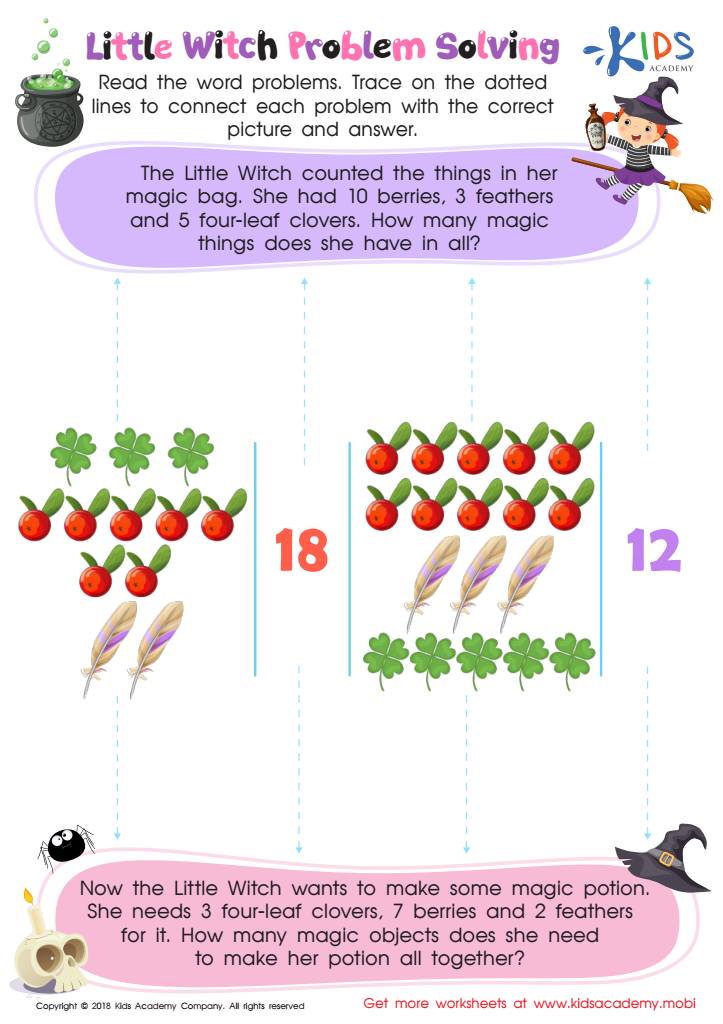

Little Witch Problem Solving Worksheet
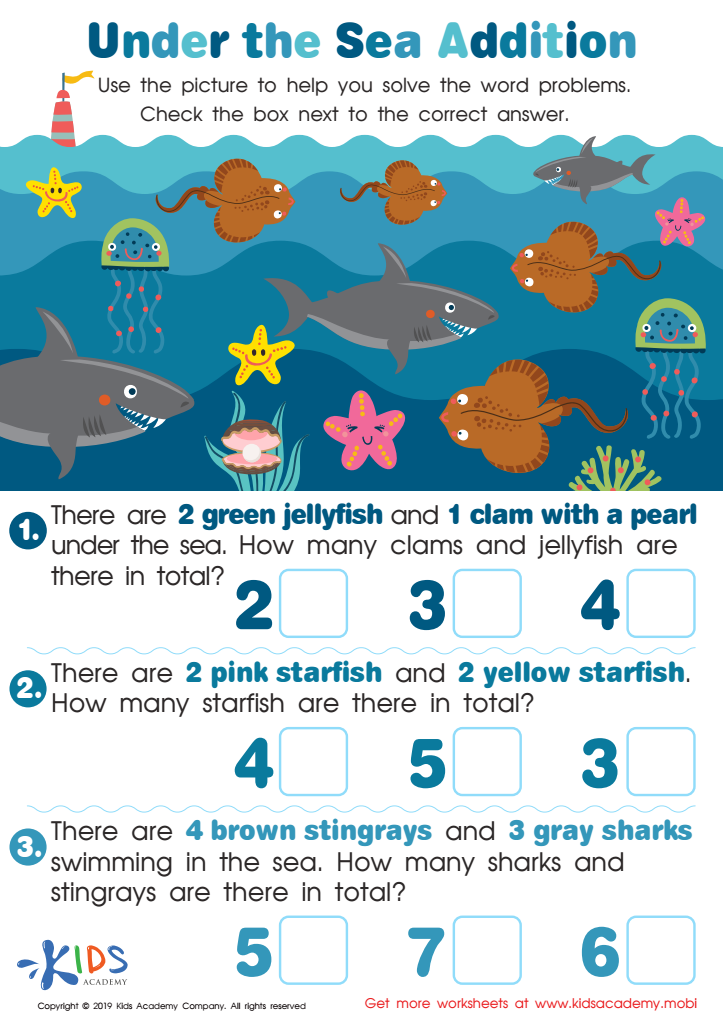

Under the Sea Addition Worksheet
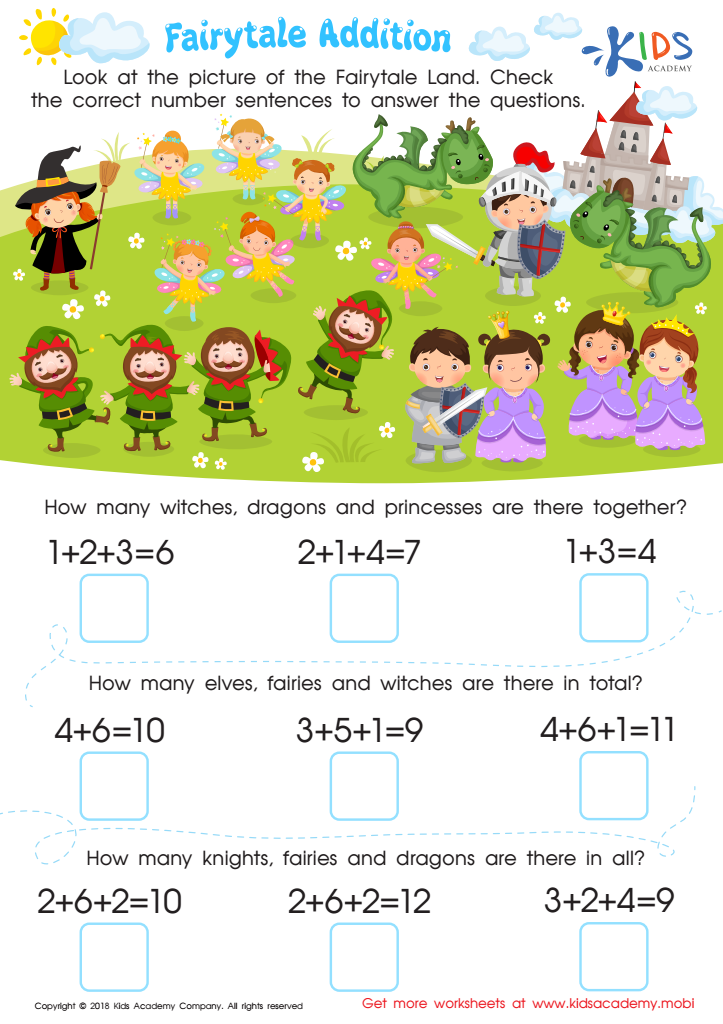

Fairytale Addition Worksheet
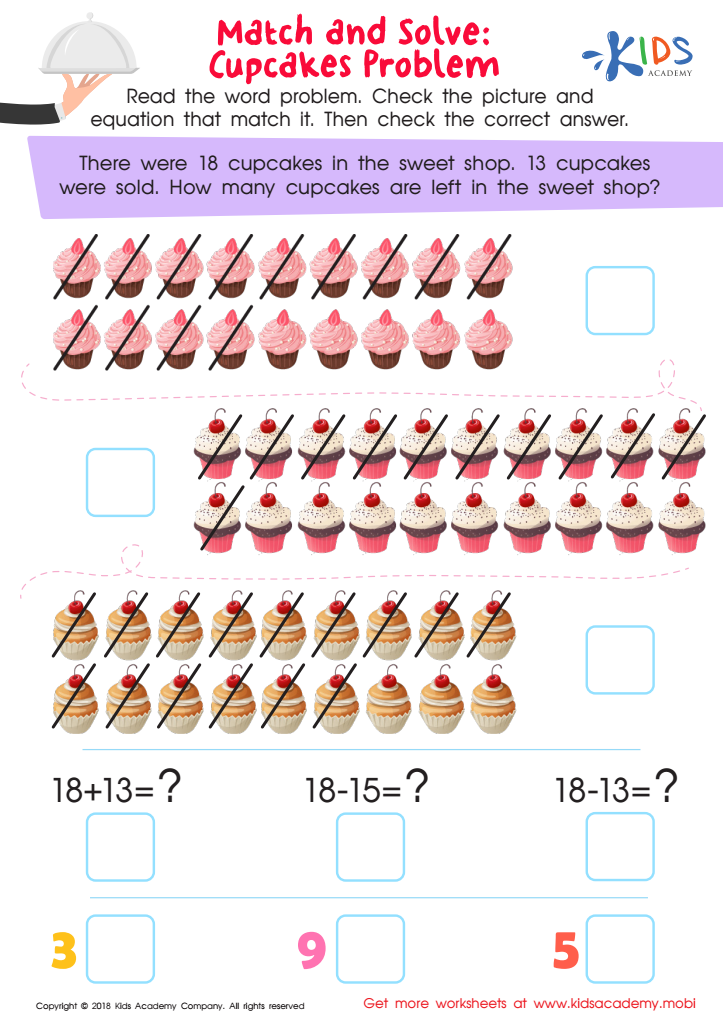

Match and Solve: Cupcakes Problem Worksheet
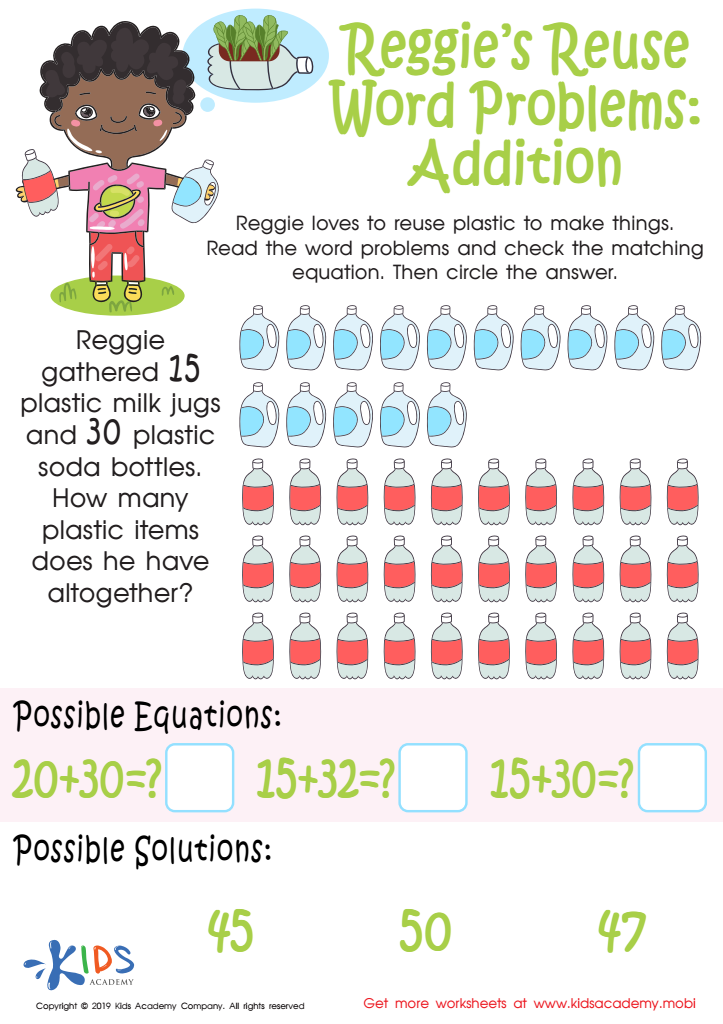

Reggie's Reuse Word Problems: Addition Worksheet
Parents and teachers should care about addition practice word problems for 9-year-olds because these exercises play a crucial role in developing critical thinking and problem-solving skills. At this age, students are transitioning from basic arithmetic to more complex mathematical concepts. Word problems require them to apply their addition knowledge in real-world scenarios, helping to enhance comprehension and retention.
Moreover, tackling word problems encourages students to carefully read and analyze information, fostering their ability to extract relevant details and discard extraneous data. This not only improves their mathematical skills but also boosts overall literacy, as they learn to decode and interpret language in context.
Additionally, engaging with word problems can make learning more enjoyable and relatable. By contextualizing math concepts, children may see the relevance of addition in everyday life, from budgeting allowance to calculating time spent on activities. This practical application can spark interest and motivation in math, reducing math anxiety and promoting confidence.
Finally, consistent practice with addition word problems can aid in preparing children for more advanced math topics, laying a strong foundation for success in their future education. By supporting this practice, parents and teachers can empower children to develop essential skills that extend beyond the classroom.

 Assign to My Students
Assign to My Students
















